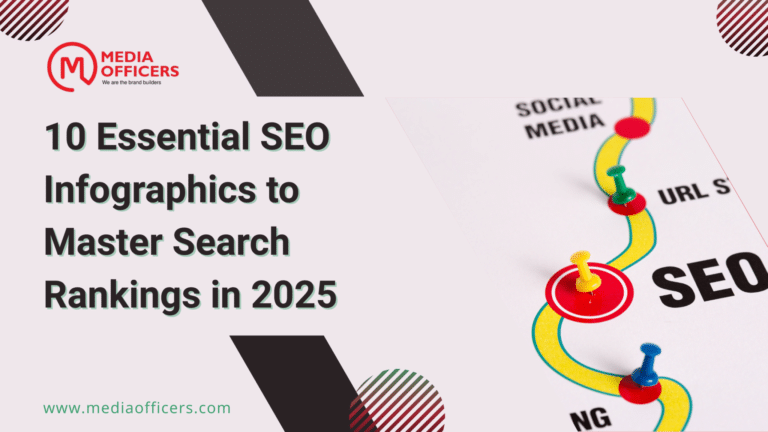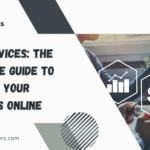Search Engine Optimization (SEO) is a crucial process for improving a website or blog’s visibility in search engine results pages (SERPs). Higher rankings increase the likelihood of attracting potential visitors. SEO encompasses various strategies and techniques designed to help search engines comprehend website content and assess its relevance to specific search queries.
Implementing SEO best practices can significantly enhance a blog’s visibility and drive organic traffic. Keyword optimization is a fundamental aspect of SEO. This involves identifying and strategically incorporating relevant, high-traffic keywords related to the blog’s content.
SEO also includes optimizing on-page elements such as meta titles, meta descriptions, and headings, as well as off-page elements like backlinks and social signals. The importance of SEO for a blog’s success cannot be overstated. Without proper optimization, a blog may struggle to rank well in search results, making it challenging for potential visitors to discover its content.
Investing time and effort into SEO can improve a blog’s visibility, increase organic traffic, and expand its audience. Furthermore, effective SEO can establish a blog as a credible and authoritative source within its niche, enhancing its reputation and influence. Understanding and implementing SEO strategies is essential for maximizing a blog’s potential and achieving long-term success in the digital landscape.
Key Takeaways
- SEO is crucial for your blog’s visibility and ranking on search engines
- Conduct thorough keyword research to understand what your audience is searching for
- Create high-quality, relevant, and engaging content that incorporates your target keywords
- Optimize your blog’s on-page elements such as title tags, meta descriptions, and internal links
- Build quality backlinks from reputable websites to increase your blog’s authority and credibility
- Utilize social media and other platforms to promote your blog and drive traffic
- Monitor and analyze your blog’s SEO performance using tools like Google Analytics to make necessary adjustments
Conducting Keyword Research and Analysis
Understanding Keyword Research Tools and Techniques
There are various tools and techniques available for keyword research, including Google Keyword Planner, SEMrush, Ahrefs, and Moz Keyword Explorer. These tools help you analyze keywords, identify opportunities, and optimize your content for better search engine rankings.
Factors to Consider in Keyword Research
When conducting keyword research, it’s essential to consider factors such as search volume, keyword difficulty, and relevance to your blog’s content. Look for keywords that have a high search volume but low competition, as these are more likely to drive organic traffic to your blog. Additionally, consider long-tail keywords, which are longer and more specific phrases that often have less competition but higher conversion rates.
Optimizing Content with Keyword Research
By conducting thorough keyword research and analysis, you can identify the most valuable keywords for your blog and optimize your content accordingly. In addition to identifying high-traffic keywords, it’s also important to analyze the intent behind these keywords. Understanding the search intent of your target audience can help you create content that aligns with their needs and interests, ultimately improving the relevance and quality of your blog.
Creating High-Quality and Relevant Content

Creating high-quality and relevant content is essential for effective SEO. Search engines prioritize content that is valuable, informative, and engaging for users. By producing high-quality content that addresses the needs and interests of your target audience, you can improve your blog’s visibility in search engine results pages (SERPs) and attract more organic traffic.
When creating content for your blog, it’s important to focus on providing value to your readers by addressing their questions, concerns, and interests. In addition to quality, relevance is also a key factor in creating effective content for SEO. Your content should be closely aligned with the keywords you are targeting and should provide valuable information related to those keywords.
By creating relevant content that addresses specific topics and keywords, you can improve your blog’s visibility in search engine results pages (SERPs) and attract more organic traffic from users searching for related information. Furthermore, it’s important to consider the format and structure of your content when creating it for SEO purposes. Use headings, subheadings, bullet points, and other formatting elements to make your content easy to read and navigate.
Additionally, incorporate multimedia elements such as images, videos, and infographics to enhance the visual appeal of your content. By creating high-quality, relevant, and well-structured content, you can improve your blog’s SEO performance and provide a better user experience for your audience.
Optimizing Your Blog’s On-Page Elements
Optimizing your blog’s on-page elements is crucial for improving its visibility in search engine results pages (SERPs). On-page optimization involves optimizing various elements within your website or blog, including meta titles, meta descriptions, headings, internal links, and image alt text. By optimizing these on-page elements, you can improve the relevance and visibility of your content in search engine results pages (SERPs) and attract more organic traffic.
When optimizing meta titles and meta descriptions, it’s important to include relevant keywords and provide a compelling description of your content. These elements appear in search engine results pages (SERPs) and can influence whether users click through to your website or not. Additionally, use headings (H1, H2, H3) to structure your content and make it easier for search engines to understand the hierarchy of information on your page.
Internal linking is another important on-page element that can improve your blog’s SEO performance. By linking to other relevant pages within your website, you can help search engines understand the structure of your website and prioritize important pages. Additionally, internal linking can help distribute link equity throughout your website and improve the visibility of important pages in search engine results pages (SERPs).
Building Quality Backlinks to Your Blog
Building quality backlinks is an essential aspect of off-page SEO that can significantly impact your blog’s visibility in search engine results pages (SERPs). Backlinks are links from other websites that point to your website or specific pages within it. Search engines view backlinks as a vote of confidence in the quality and relevance of your content.
By building quality backlinks from authoritative and relevant websites, you can improve your blog’s authority and visibility in search engine results pages (SERPs). There are various strategies for building quality backlinks to your blog. One effective approach is to create high-quality content that naturally attracts backlinks from other websites.
By producing valuable and engaging content that addresses the needs of your target audience, you can increase the likelihood of other websites linking to your content. Additionally, reaching out to other website owners and influencers within your niche can help you secure backlinks from relevant and authoritative sources. Another strategy for building quality backlinks is guest blogging.
By contributing guest posts to other websites within your niche, you can include links back to your own blog within the content or author bio. This not only helps you build backlinks but also exposes your content to a wider audience. Additionally, participating in industry forums, directories, and online communities can help you build quality backlinks from relevant sources.
Utilizing Social Media and Other Platforms to Boost Your Blog’s SEO

Boosting Visibility through Social Media
By promoting your blog content on social media platforms such as Facebook, Twitter, LinkedIn, Instagram, and Pinterest, you can increase its visibility and attract more organic traffic.
Engaging with Your Audience
When utilizing social media to boost your blog’s SEO, it’s important to engage with your audience and encourage them to interact with your content. Encourage likes, shares, comments, and retweets by creating engaging posts that resonate with your audience. Additionally, consider using relevant hashtags to increase the discoverability of your content on social media platforms.
Leveraging Other Platforms
In addition to social media, other platforms such as YouTube, SlideShare, Quora, and Medium can also be utilized to boost your blog’s SEO performance. By creating multimedia content such as videos, presentations, answers to questions, and articles on these platforms, you can increase the visibility of your blog across different channels. Additionally, these platforms often have high domain authority, which can help improve the authority of your blog through backlinks from these platforms.
Monitoring and Analyzing Your Blog’s SEO Performance
Monitoring and analyzing your blog’s SEO performance is essential for identifying areas of improvement and optimizing your strategies for better results. There are various tools available for monitoring and analyzing SEO performance, including Google Analytics, Google Search Console, SEMrush, Ahrefs, Moz Pro, and more. These tools provide valuable insights into key metrics such as organic traffic, keyword rankings, backlink profile, click-through rates (CTR), bounce rates, and more.
By regularly monitoring these metrics, you can gain a better understanding of how well your blog is performing in search engine results pages (SERPs) and identify opportunities for improvement. For example, if you notice a decline in organic traffic or keyword rankings for certain pages or keywords, you can investigate the cause and make necessary adjustments to improve their performance. In addition to monitoring key metrics, it’s also important to conduct regular audits of your website’s SEO performance.
This involves reviewing on-page elements such as meta titles, meta descriptions, headings, internal links, image alt text, as well as off-page elements such as backlink profile and social signals. By conducting regular audits of your website’s SEO performance, you can identify areas that need improvement and take proactive steps to optimize them for better results. In conclusion, understanding SEO and its importance for your blog is crucial for maximizing its potential and achieving long-term success.
By conducting thorough keyword research and analysis, creating high-quality and relevant content, optimizing on-page elements, building quality backlinks, utilizing social media and other platforms effectively, and monitoring and analyzing SEO performance regularly; you can improve your blog’s visibility in search engine results pages (SERPs) and attract more organic traffic. With a strategic approach to SEO implementation and continuous optimization efforts; you can position your blog as a credible and authoritative source within your niche while reaching a wider audience online.
If you’re looking to take your blog to the next level, you may also be interested in learning about the potential of drop servicing and how to build a profitable online business. Check out this article on unlocking the potential of drop servicing for more insights into growing your online presence and maximizing your blog’s reach.
FAQs
What is SEO?
SEO stands for Search Engine Optimization, which is the practice of increasing the quantity and quality of traffic to your website through organic search engine results.
Why is it important to optimize your blog for SEO?
Optimizing your blog for SEO is important because it helps your content rank higher in search engine results, making it more likely to be seen by potential readers. This can increase your blog’s visibility and drive more traffic to your site.
What are the 5 easy steps to optimize your blog for SEO?
The 5 easy steps to optimize your blog for SEO are:
1. Conduct keyword research
2. Optimize your blog post titles and meta descriptions
3. Create high-quality, relevant content
4. Use internal and external links
5. Optimize your images with alt text and descriptive file names
How can keyword research help with SEO optimization?
Keyword research helps you identify the terms and phrases that people are searching for in relation to your blog’s topic. By incorporating these keywords into your content, you can improve your chances of ranking higher in search engine results for those specific queries.
What are internal and external links, and how do they impact SEO?
Internal links are links from one page on your blog to another page on the same blog, while external links are links from your blog to another website. Both types of links can help improve your blog’s SEO by providing context and relevance to your content, as well as establishing connections with other reputable websites.








